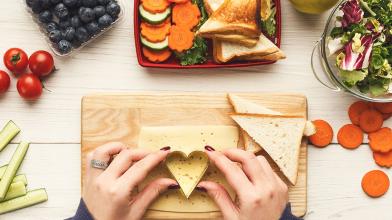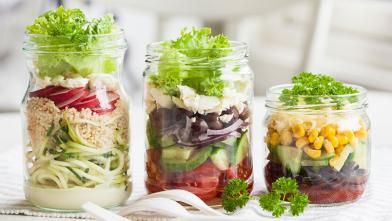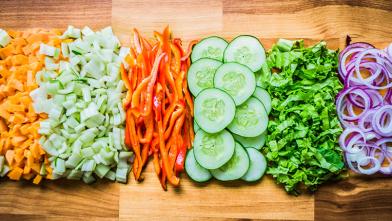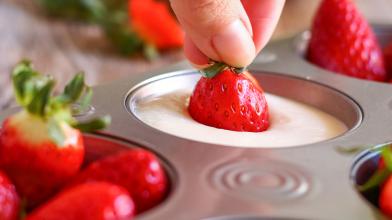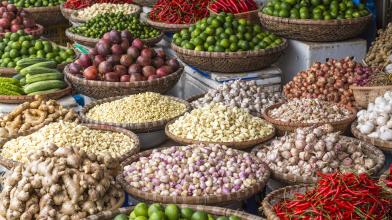Managing kidney disease and diabetes can be challenging. Nutrition is important every step of the way, whether you are newly diagnosed, stage 3, 4, or on dialysis. To make meal planning easier, we have added “kidney-friendly” recipe tags to help you find tasty meals that are good for diabetes and kidney health.
Finding Kidney-Friendly Recipes on Diabetes Food Hub
Kidney-friendly tags can now be found on select recipes that meet kidney guidelines for lower sodium, potassium and phosphorus.
In addition to the “kidney-friendly” tag, recipes will have another tag to indicate if it is friendly for chronic kidney disease (CKD) dialysis only, or for both “CKD Dialysis” and “CKD Non-Dialysis.” These unique tags are important because “CKD Dialysis” recipes are higher in protein compared to “CKD Non-Dialysis” recipes.
Browse kidney-friendly recipes
The Diabetes and Kidney Connection
Anyone with diabetes is at risk of developing CKD. In fact, the number one cause of CKD is diabetes. High blood pressure also increases a person’s risk of developing CKD and is the second leading cause of CKD.
CKD is sometimes treated with dialysis. Dialysis is a treatment that removes excess fluid and waste from your blood. Your doctor will discuss the need for dialysis when kidney function drops below 15% or less.
Increasing your knowledge of kidney health can help protect and preserve your kidney function. If you are on dialysis, use these tags to find recipes to help you plan healthy meals.
The Kidney Diet
The kidney diet varies based on stage of kidney disease, other conditions like diabetes or cardiovascular disease, lab results, body size and nutritional status.
In early-stage CKD, blood pressure and glucose management are important to decrease damage to the kidneys. In later stages, a lower protein diet may help reduce the kidneys’ workload and decrease the build-up of waste, like blood urea nitrogen (BUN) and creatinine in the blood.
Minerals like phosphorus and potassium may be limited, but this is based on each individual’s lab values.
For people on dialysis, higher protein is required. For those who choose home dialysis treatments, a higher potassium diet may be needed.
A registered dietitian can help create an eating plan for you based on these factors.
Kidney Education Resources
Here are some resources to help you learn more about your kidneys and how to manage your kidney health:







